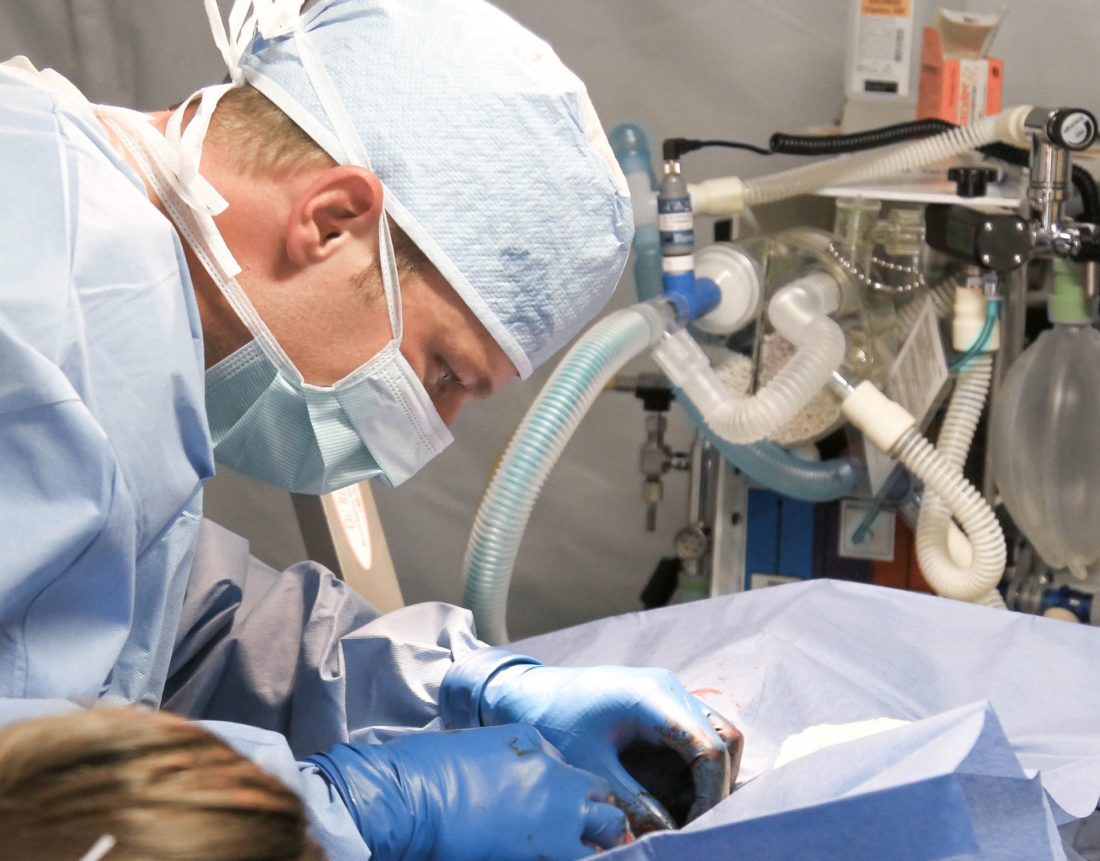What Should You Do If You Suspect Medical Malpractice?
 Even if you trust your doctor and medical professionals implicitly, there’s a chance you could be the victim of medical malpractice. Medical malpractice comes in many forms, and it can have a seriously debilitating effect on your life. If you’re given the wrong treatment, or if your doctor makes an error, it could leave you with an entirely different condition, or an injury that could impact you for the rest of your life.
Even if you trust your doctor and medical professionals implicitly, there’s a chance you could be the victim of medical malpractice. Medical malpractice comes in many forms, and it can have a seriously debilitating effect on your life. If you’re given the wrong treatment, or if your doctor makes an error, it could leave you with an entirely different condition, or an injury that could impact you for the rest of your life.
So what steps should you take if you suspect that you’ve been a victim of medical malpractice?
Understanding Medical Malpractice
First, you should work to understand what medical malpractice is and isn’t. Medical malpractice is a legal term that refers to a negligent or harmful action taken by a medical professional, like a doctor or a surgeon. For this to be considered malpractice, the action or untaken action needs to significantly deviate from what’s typically expected of someone in that role. The action also must result in measurable harm to you. Typically, this means causing an injury or making a condition worse.
If your doctor acted reasonably, or if their negligent action didn’t cause you direct harm, your case won’t qualify as medical malpractice.
What You Should Do
If you do believe you’ve been caused harm due to the action or decision of a medical professional in your life, there are several steps you should take:
- Talk to a lawyer. One of the most important things you can do is start talking to a lawyer. This doesn’t mean you have to enter formal negotiations for a settlement or start preparing a court case, but it can help you better understand your situation and whether or not your case could qualify as medical malpractice. Only a lawyer will be able to definitively estimate your chances of success, and they’ll be able to guide you on the next steps of the process as well. Initial consultations with lawyers are typically free, so you don’t have much to lose. If a lawyer gives you advice or direction that contradicts anything else you’ve seen or read, always side with the lawyer.
- Get a second opinion with another doctor. It’s often good to get a second opinion from another medical professional, but this especially holds true if you suspect medical malpractice. Another doctor or medical professional will be able to give you their perspective on your condition, and the approach your original doctor took. They may not be able to say, definitively, whether the doctor acted negligently, but they can give you an outline of what they might consider to be “reasonable care.” They may also be able to treat you or help you recover from whatever new ailments you have.
- Retrieve copies of your medical records. If you can, get copies of your medical records. If you contact your former doctor, they may ask you why you need them. Try to remain vague; alerting them that you suspect medical malpractice may force them to obfuscate the information. Remain polite yet insistent, and be sure to make extra copies when you get them. These will be vital in proving your case.
- Log your actions, symptoms, and feelings. Medical records aren’t the only documents that can help your case. It’s also a good idea to keep a personal log, jotting down as many details as you can. Keep record of all the doctor’s visits you’ve attended, and what advice you got at each stage of the process. Then, keep track of your symptoms and how they’ve progressed since the initial incident. Your subjective experiences are also important to note.
- Restrict communication on this topic. It’s okay to talk to your closest family members and friends about your situation, but try to avoid any public or permanent forms of communication. If you post on social media or try to publicize information related to your case, it could hurt you in the long run.
- Don’t sign anything without legal advice. If your doctor or the hospital in question discovers you’re preparing legal action, or if they know they made a mistake and want to make up for it, they may pressure you into signing a document that relieves them of responsibility or offers you money as an initial settlement. It’s always a bad idea to sign a document like this unless you fully understand it (and its consequences).
Medical malpractice is complicated, and it’s a topic that needs to be taken seriously. Even if you trust your doctor to make all the right decisions, there’s a chance they could make a mistake. If that mistake looks like medical malpractice, talk to a lawyer as soon as possible, and get a professional opinion on whether it makes sense to pursue legal action.









